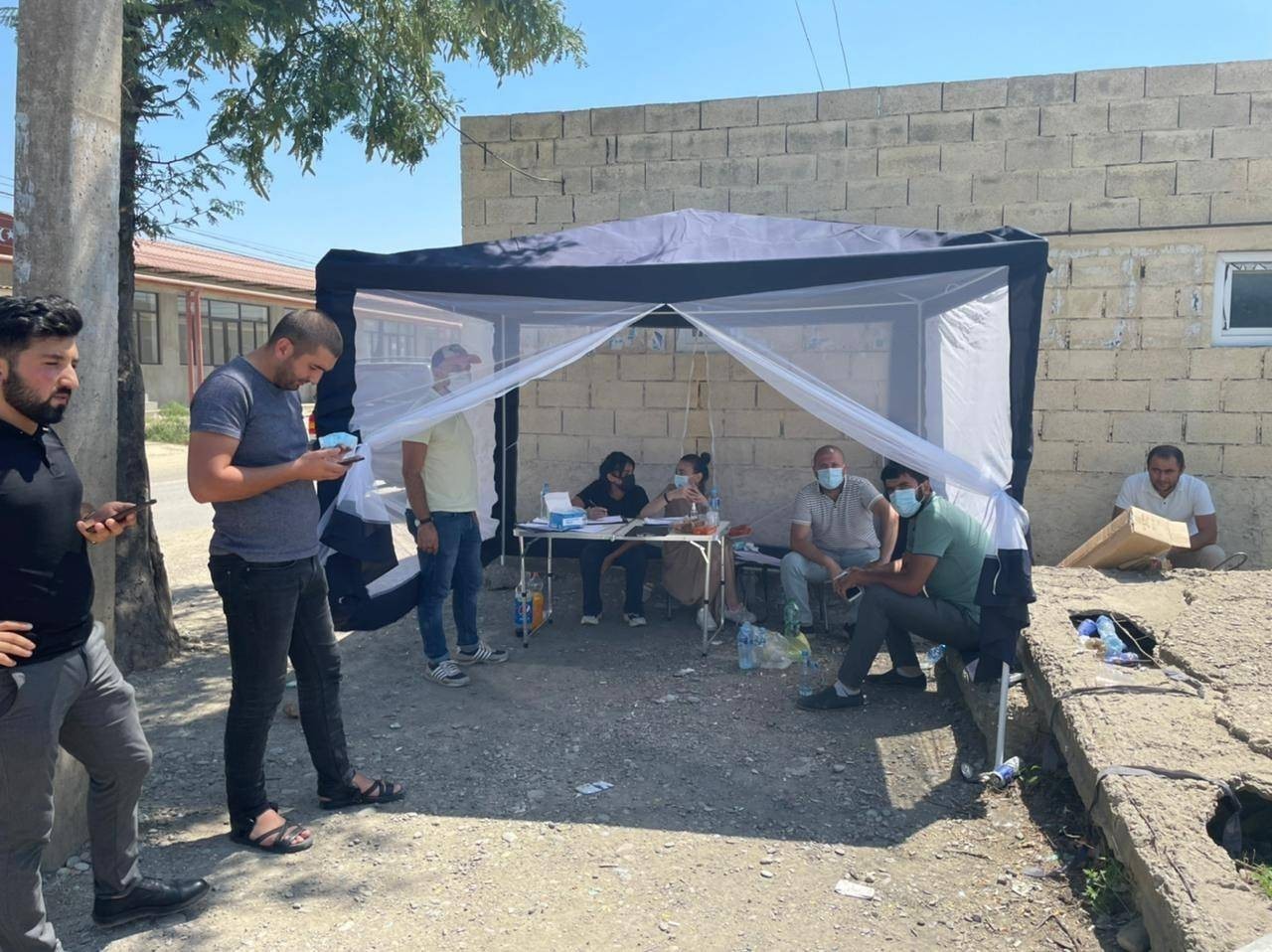საერთო ცხელი ხაზი +995 577 07 05 63


The Center for Social Justice (formerly EMC) expresses solidarity with the self-organized process in the Azerbaijani community of Georgia, which is related to the return of historical surnames, and calls on the Parliament to support this process.
A few weeks ago, at the initiative of the platform Salam, a draft law on the Amendments to the Law of Civil Acts of Georgia was submitted to the Bureau of the Parliament of Georgia. The draft law sets out a new and special rule for changing surnames by removing the non-traditional / non-authentic suffix or changing the suffix. In the bill, Platform Salam calls for the emergence of a special entry stating that "a person whose surname ends in an unauthentic / non-traditional suffix ('ov' / 'ev' or other) has the right to request that the suffix be removed from the surname and / or replaced by a traditional / authentic suffix characteristic to those surnames to which a person has some connection based on tradition, ethnicity, family background and/or religion. The platform Salam needs the support of at least 25,000 voters to initiate the bill in parliament, and they have already started collecting signatures in various regions as part of the #GiveMeBackMySurname Campaign.
The history of changing surnames in Georgia is connected with the policy of the Russian Empire and the Soviet Union. In order to facilitate the registration and control of the population during these periods, it became mandatory to "register" surnames with Russian suffixes (ov/ev and/or other) added to the personal name. As a result, a large part of the citizens lost their traditional surnames. This process affected a large number of ethnic groups, including the Azerbaijani community of Georgia.
It should be noted that the existing legal framework for surname change and restoration does not allow our citizens to restore traditional surnames. Article 64 of the Law of Georgia on Civil Acts does not contain a direct record on the removal of suffixes for a surname, while the restoration of historical surnames makes it impossible or significantly complicated to return authentic surnames due to the excessive burden of proof on the citizen. Namely, according to Article 65 of the Law, “a person may request the restoration of his or her historical surname if the combination of evidence proves that his/her surname originated as a result of conversion of another surname or acceptance of another surname by a representative of his/her historical surname. The restoration of the historical surname, among other evidences, may also be based on a substantiated scientific assumption, which confirms the existence of the circumstances referred to in paragraph 1 of this article. ” In order to make a reasonable scientific assumption, at this point there is no ready document/research, and in each individual case the citizen will have to find a relevant scientist/historian, spend financial and other resources and order a research that may not meet the requirements of the above article. Consequently, citizens are practically unable to obtain evidence of surname transformation.
It should also be noted that the practice of the Civil Registry in relation to statements concerning a person's request to remove an unauthorized suffix from a surname and return it to its original form is inconsistent. Namely, the LEPL State Services Development Agency sometimes evaluates applications in accordance with Article 64, Paragraph 2, Subparagraph "B" of Civil Acts (taking the surname of one of the relatives of a direct ascending branch), and sometimes sub-paragraph "T" of the same Act (restoration of the historical surname), or in accordance with the rules established by Articles 66 (recognition of the surname legally) and 67 (surname determination). In any event, the applicant's request is not upheld. In any case, the applicant's request is not granted as the existing regulations do not meet the applicants' actual needs or regulate other legal matters.
The above confirms the need for special regulation of the issue, which will regulate the rule of changing surnames with the addition of suffixes and separate it from other cases defined by the surname change legislation. It is clear that this change will also increase the efficiency of the civil registry, and citizens will be able to easily change non-authentic surnames without unnecessary bureaucracy, costs and hassles.
Name and surname are the main identifying data of a person and they are linked to human dignity, honor and identity. In the process of regulating these issues, the protection of the specifics of the personal autonomy and identity of the person is of great importance and requires special care from the state. Additional obligations of the state towards ethnic minorities are to protect their identity and distinctiveness.
With this in mind, the Center for Social Justice joins the campaign #GiveMeBackMySurname and calls on:
The citizens of Georgia to support this important initiative of the Platform Salam, which expresses the interest of large groups of the Azerbaijani community in Georgia;
The Parliament of Georgia to understand the historical and social significance of this process and facilitate the implementation of appropriate legislative changes.
The Center for Social Justice tries to provide legal support for this process, and along with other organizations, participated in the drafting of the bill organized by the platform Salam. We also plan to organize court disputes in this direction.
The website accessibility instruction